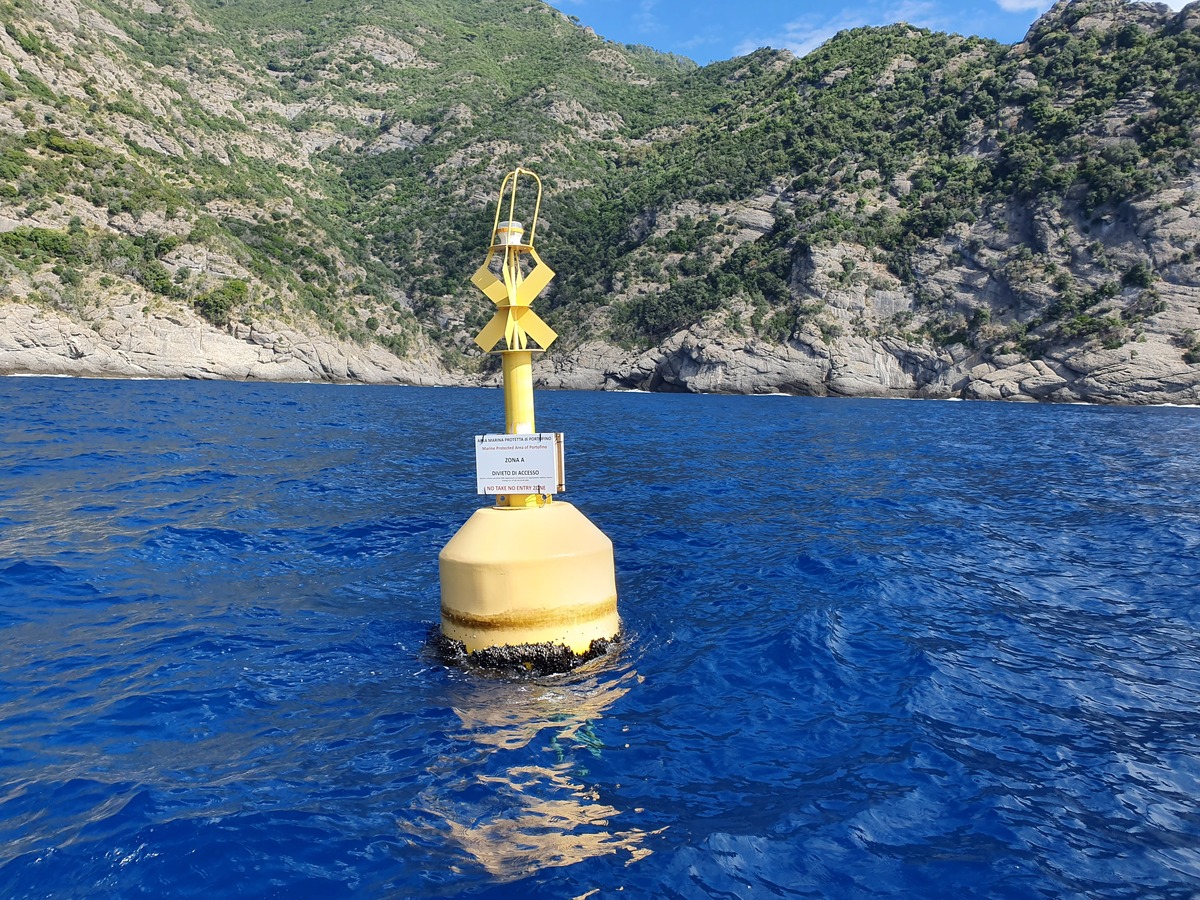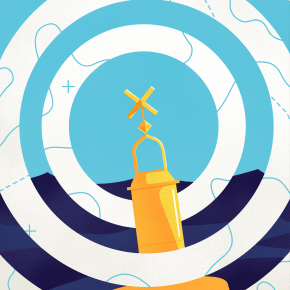SOS Ocean: an alert for the oceans in the run-up to UNOC
With two months to go before the United Nations Ocean Conference in Nice, the SOS Ocean event served to remind us of the essential - the ocean is teetering on the brink with time running out fast. The international community has taken a step towards solutions by setting eight objectives for sustainable exploitation.
The Eiffel Tower was lit up in blue like a lighthouse in the middle of dry land to relay a call from the depths, a planetary SOS. The oceans that absorb all our excesses, regulate our climate and feed billions of people are now teetering on the brink.
On March 30th and 31st 2025, scientists, diplomats, politicians and militants met in Paris to repeat their message in unison - it's late, but there's still time. The SOS Ocean event was organised at France's initiative , taking place two months before the upcoming United Nations Ocean Conference (UNOC-3), scheduled for June in Nice. The objective? To remind everyone of the key issues for the preservation of the world's oceans with science's crucial input.
An urgent call to action
A wind of impatience blew through the Musée National de la Marine during these two days. For while findings and conclusions are shared widely, decisions take time to follow. António Costa, the President of the European Council, considers the world's oceans to remain the item that gets left behind on the climate agenda even though they are the planet's pillar. "We can't be the generation that looks the other way", he declared. "The oceans are a common good for humanity. It's time for action".
Al Gore, the former US vice-president, delivered a passionate plea backed up by scientific facts. He reminded the conference that ocean acidity has increased by 30% and that our ubiquitous plastics are filtering into our brains. He says there are solutions but the political agenda is still dominated by fossil fuel lobbies. So what is the best response? "We need to construct a sustainable relationship with the oceans and the only way to do that is to rally politicians, scientists, environmentalists and economic stakeholders around the same demand for science and knowledge", explains Olivier Poivre d'Arvor, France's ambassador for the poles and oceans.
A roadmap to be built on existing foundations
The research world is unanimous – current scientific knowledge and solutions suffice for action to be taken to preserve the oceans. "However, at the moment there are not enough actual actions", opines Jean-Pierre Gattuso, an oceanographer with the CNRS who is co-steering, with François Houllier of the Ifremer1 , the One Ocean Science conference to be held in Nice a few days before UNOC-3. And yet research-driven actions are synonymous with success as the return of bluefin tuna to the Mediterranean, the increased population of humpback whales in the Pacific or the sustainable exploitation of scallops clearly demonstrate. As Jean-Pierre Gattuso explains, "now we have to capitalise on these successes and reinforce existing mechanisms. In fact, multilateralism is the only way to tackle a global issue like preserving the oceans."
This is because, despite growing opposition, in recent years environmental multilateralism has been reinforced around treaties and structuring objectives. Examples include the tough negotiations for an international treaty against plastic pollution, the treaty on the conservation and sustainable use of marine biodiversity in the high seas (BBNJ), the implementation of the UN's Sustainable Development Goals (particularly SDG 14 on the world's oceans) or the discussions on decarbonising maritime transport that took place at the International Maritime Organisation.
All of these issues are part of the eight objectives the French President has set as guidelines for UNOC-3. In his closing speech, Emmanuel Macron also insisted that 30% of the ocean needs to be protected through marine protected areas by 2030 and that sustainable fishing that respects ecosystems is vital.

Nevertheless these two ambitions contrast with certain national realities that bring up questions. The NGOs have stepped up their campaign against the authorisation of bottom trawling in French marine protected areas (MPAs). This fishing technique involves dragging heavy nets across the seabed which also destroys fragile habitats like corals, sponges and seagrass beds. And yet, an MPA is actually supposed to preserve marine biodiversity, restore ecosystems and guarantee the sustainability of usages so clearly destructive practices have to be banned. Jean-Pierre Gattuso is certain of one thing – "Scientists are unanimous on this - an MPA has to be 100% protected, with no case-by-case approaches".
Science is sounding the alarm
During the SOS Ocean event two reports were made public, with each highlighting a major aspect of current maritime governance, namely the deep seas and the blue economy.
The first was coordinated by the OECD and provides an unprecedented overview of the ocean economy. In fact, if the oceans were a country, this would represent the fifth largest economy in the world. Tourism, transport, offshore extraction have led the blue economy to double in 25 years. This report calls for the reinforcement of governance, the promotion of innovation, the enhancement of observation data and the integration of the countries of the South into value chains.
The second deliverable was the International Platform for Ocean Sustainability's (IPOS)2 report on deep-sea mining as requested by France. The absence of clear rules and the legal vacuum surrounding the international seabed pose a major risk to these ecosystems at a time when some countries are accelerating their extraction projects and companies are openly defying multilateral frameworks.
Bruno David, the report's coordinator and former director of the French National Natural History Museum, reports on the study's main conclusion. "Current knowledge is insufficient to assess the consequences of mining, including on the carbon cycle, so a moratorium of 10 to 15 years has been recommended in the name of the precautionary principle". The challenge for the Nice conference in June is to turn this into a collective commitment.
"Playing our role of advising"
"The objectives that have been announced show there's a convergence between scientific and political priorities. So, now we're going to carry on playing our role of advising and establishing or disseminating scientific reality which is constantly evolving", emphasises Jean-Pierre Gattuso. This link between science and diplomacy echoes the ten themes for the One Ocean Science (OOS) conference he is jointly organising for the CNRS and which will take place just before UNOC-3.
"The CNRS has played an essential role right from the start by getting involved in creating the first ever scientific congress to be held in conjunction with a United Nations conference, developing scientific ocean monitoring tools like our future ocean barometer, the Starfish Index, which is going to be introduced in June", adds Olivier Poivre d'Arvor. In Nice, the OOS Congress will give the decision-makers attending UNOC-3 a list of recommendations.
In fact, at the end of his speech Emmanuel Macron particularly stressed how essential the connection is between science and decision-making, hammering home the idea that "no action should be taken about the oceans without input from science". He also expressed his support for free, independent and robustly financed research in a powerful statement at a time when science is being increasingly challenged.
"Things that are very complicated for the climate or geopolitics are not necessarily so for the oceans. Restoring them, regenerating them, treating them like a living object - the solutions do exist. I really have every hope there will be a global ocean consensus in Nice and that UNOC-3 will be a true turning point", concludes Olivier Poivre d'Arvor.
- 1French Research Institute for Exploitation of the Sea
- 2IPOS is jointly chaired by the biologist and oceanographer Françoise Gaill and Tanya Brodie Rudolph, a lawyer and an expert in environmental law and ocean governance. The organisation draws on the contributions of science to bridge the gap between political commitments and tangible action.
Eight priorities for preserving the world's oceans
Protect 30% of our oceans by 2030: achieve 12% to 15% ocean protection through marine protected areas by UNOC-3.
Put an end to plastic pollution by drastically reducing marine waste and continuing negotiations for the international treaty against plastic pollution.
Promote sustainable fishing that respects ecosystems: fight illegal, illicit and unreported fishing and achieve an international agreement to end subsidies that encourage such practices.
Decarbonize maritime transport: develop clean fuels, electrify French ports and reach carbon neutrality by 2050.
Strengthen international cooperation for effective ocean governance: create a coalition of cities and regions affected by rising sea levels and promote a European Oceans Pact.
Mobilize new funding to build a sustainable blue economy: invest in 'blue tourism', energy, regeneration, biotechnology, wind propulsion, ports and sustainable fishing.
Bring the International Treaty for the Protection of the High Seas and Marine Biodiversity (BBNJ) into force: 112 countries have signed the treaty with 21 having ratified it, including France. The objective is to reach at least 60 ratifications before it comes into force.
Defend science and support research to better understand our oceans and create the best framework to protect them: maintain robust funding for research so established facts drive changes to practices.
